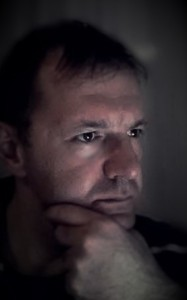Related Research Articles
Bioethics is both a field of study and professional practice, interested in ethical issues related to health, including those emerging from advances in biology, medicine, and technologies. It proposes the discussion about moral discernment in society and it is often related to medical policy and practice, but also to broader questions as environment, well-being and public health. Bioethics is concerned with the ethical questions that arise in the relationships among life sciences, biotechnology, medicine, politics, law, theology and philosophy. It includes the study of values relating to primary care, other branches of medicine, ethical education in science, animal, and environmental ethics, and public health.
Utilitarian bioethics refers to the branch of bioethics that incorporates principles of utilitarianism to directing practices and resources where they will have the most usefulness and highest likelihood to produce happiness, in regards to medicine, health, and medical or biological research.

Arthur L. Caplan is an American ethicist and professor of bioethics at New York University Grossman School of Medicine.

The Hastings Center is an independent, nonpartisan bioethics research institute and think tank based in Garrison, New York. It was instrumental in establishing the field of bioethics and is among the most prestigious bioethics and health policy institutes in the world.

Arthur Schafer is a Canadian ethicist specializing in bioethics, philosophy of law, social philosophy and political philosophy. He is Director of the Centre for Professional and Applied Ethics, at the University of Manitoba. He is also a full professor in the Department of Philosophy and an ethics consultant for the Department of Paediatrics and Child Health at the Health Sciences Centre in Winnipeg. For ten years he was head of the Section of Bio-Medical Ethics in the Faculty of Medicine of the University of Manitoba. He has also served as visiting scholar at Green College, Oxford.
Ethics or moral philosophy is a branch of philosophy that involves systematizing, defending, and recommending concepts of right and wrong conduct. The field of ethics, along with aesthetics, concern matters of value, and thus comprise the branch of philosophy called axiology.
The International Bioethics Committee (IBC) of UNESCO is a body composed of 36 independent experts from all regions and different disciplines that follows progress in the life sciences and its applications in order to ensure respect for human dignity and human rights. It was created in 1993 by Dr Federico Mayor Zaragoza, General Director of UNESCO at that time. It has been prominent in developing Declarations with regard to norms of bioethics that are regarded as soft law but are nonetheless influential in shaping the deliberations, for example, of research ethics committees and health policy.

The Center for Biotechnology, Law and Ethics is a bioethics, biotechnology, and biotechnology law research center of Cumberland School of Law located on the Samford University campus in Birmingham, Alabama. It is one of the few research centers of its kind at a United States law school, and, in conjunction with the Cumberland Law Review, the Center publishes an annual journal of scholarly works, which circulates in the United States and foreign countries.
The Nuffield Council on Bioethics is a UK-based independent charitable body, which examines and reports on bioethical issues raised by new advances in biological and medical research. Established in 1991, the Council is funded by the Nuffield Foundation, the Medical Research Council and the Wellcome Trust. The Council has been described by the media as a 'leading ethics watchdog', which 'never shrinks from the unthinkable'.

Vojin B. Rakic is a Serbian philosopher and political scientist. He publishes in English, but also in Serbian. He has a PhD in political science from Rutgers University in the United States. His publications on ethics, bioethics, Kant, and cosmopolitan justice are considered as influential writings in the international academic arena, as can be read in the references to Rakić`s works, the endorsements of his two latest books, as well as in the open letter of support for Rakić that has been signed by dozens of the world`s most reputed (bio)ethicists and philosophers, in which they state their opinion about him.
Michael Alan Grodin is Professor of Health Law, Bioethics, and Human Rights at the Boston University School of Public Health, where he has received the distinguished Faculty Career Award for Research and Scholarship, and 20 teaching awards, including the "Norman A. Scotch Award for Excellence in Teaching." He is also Professor of Family Medicine and Psychiatry at the Boston University School of Medicine. In addition, Dr. Grodin is the Director of the Project on Medicine and the Holocaust at the Elie Wiesel Center for Judaic Studies, and a member of the faculty of the Division of Religious and Theological Studies. He has been on the faculty at Boston University for 35 years. He completed his B.S. degree at the Massachusetts Institute of Technology, his M.D. degree from the Albert Einstein College of Medicine, and his postdoctoral and fellowship training at UCLA and Harvard University.

I. Glenn Cohen is a Professor of Law at Harvard Law School. He is also the director of Harvard Law School's Petrie-Flom Center for Health Law Policy, Biotechnology, and Bioethics.
Ann M. Mongoven is an American philosophy professor and medical ethicist. She earned her Ph.D. in religious studies/ethics from the University of Virginia in 1996 and a M.P.H. from the Johns Hopkins University Bloomberg School of Public Health in 2006. Mongoven taught courses at Indiana University/Bloomington before going on to teach at Michigan State University where she currently holds a dual appointment with the philosophy department and the Center for Ethics and Humanities in the Life Sciences. Mongoven is also a Michigan State University Lilly Teaching Fellow and was an ethics consultant for the United States Department of Health and Human Services.
The MacLean Center for Clinical Medical Ethics, founded in 1981, is a non-profit clinical medical ethics research institute based in the United States. Founded by its director, Mark Siegler, the MacLean Center for Clinical Medical Ethics aims to improve patient care and outcomes by promoting research in clinical medical ethics by educating physicians, nurses, and other health care professionals and by helping University of Chicago Medicine patients, families, and health care providers identify and resolve ethical dilemmas. The center has trained over 410 fellows, including many physicians, attorneys, PhDs and bioethicists.
David DeGrazia is an American moral philosopher specializing in bioethics and animal ethics. He is Professor of Philosophy at George Washington University, where he has taught since 1989, and the author or editor of several books on ethics, including Taking Animals Seriously: Mental Life and Moral Status (1996), Human Identity and Bioethics (2005), and Creation Ethics: Reproduction, Genetics, and Quality of Life (2012).

Françoise Elvina BaylisFISC is a Canadian bioethicist whose work is at the intersection of applied ethics, health policy, and practice. The focus of her research is on issues of women's health and assisted reproductive technologies, but her research and publication record also extend to such topics as research involving humans, gene editing, novel genetic technologies, public health, the role of bioethics consultants, and neuroethics. Baylis' interest in the impact of bioethics on health and public policy as well as her commitment to citizen engagement]and participatory democracy sees her engage with print, radio, television, and other online publications.
Jan Deckers works in bioethics at Newcastle University. His work revolves mainly around three topics: animal ethics, reproductive ethics and embryo research, and genetics.

Christine I. Mitchell is an American filmmaker and bioethicist and until her retirement in September 2022, the executive director of the Center for Bioethics at Harvard Medical School (HMS).

Vardit Ravitsky is a bioethicist, researcher, and author. She is a full professor at the University of Montreal and a senior lecturer on Global Health and Social Medicine at Harvard Medical School. She is immediate-past president and current vice-president of the International Association of Bioethics, and the director of Ethics and Health at the Center for Research on Ethics. She is a Fellow of the Pierre Elliott Trudeau Foundation, where she Chaired the COVID-19 Impact Committee. She is also Fellow of The Hastings Center and of the Canadian Academy of Health Sciences.
References
- ↑ Hakkarinen, Mark. "Top 100 Bioethics Journals in the World, 2015". repository.library.georgetown.edu. Retrieved 2018-06-03.
- ↑ "Where to publish and not to publish in bioethics". THE ETHICS BLOG. 2016-04-19. Retrieved 2018-06-03.